Introduction
Dates make a delicious snack for people every once in a while, especially since they are completely natural. But can dogs eat dates? Do they present any particular health risks for them?
We’re answering this question in today’s post and we’re also looking at several other aspects, such as how many dates a dog can safely eat before they begin to feel sick.
Are Dates Good for Dogs?
Dates are packed in nutrients, which means that they can indeed supply your dog with a number of health benefits. However, before we move on to them, we’d like to note that dogs are not genetically engineered to have a lot of fruit in their diets.
For this reason, you should always look at dates as a treat that you can give your pet whenever you want to reward them. Dates or other fruits should never be considered the main source of food for this species.

Calcium
What’s interesting about dates is that every 100 grams of this fruit contain 3% calcium. As you probably know, calcium is an extremely important nutrient for animals and humans alike, especially when they are still growing.
Puppies often need to have their calcium levels increased with supplements in order for them to be able to develop strong and healthy bones. Since dates contain some calcium, you might be able to skip a day of supplementation thanks to them.
Magnesium
Every 100 grams of dates contains 10% in magnesium. This mineral can perform a variety of functions inside an animal’s body, such as lowering their blood pressure, increasing their resistance to exercise, and even helping them fight off inflammation.
It also prevents your dog from breaking its bones in the event of a heavy fall or trauma (such as a car accident). Alongside calcium, it is one of the most important minerals that pets should receive from food or supplements.
Vitamin B6
This fruit is also quite rich in vitamin B6, another nutrient that’s essential for a healthy development process. Vitamin B6 helps prevent anemia and sustain the nervous system, in general, which is why it’s often administered to dogs over the age of 8-9.
This age category is more predisposed to developing cognitive disorders (similar to Alzheimer’s disease in humans). It’s also involved in keeping your dog’s cardiovascular health in check since it can reduce the risk of heart disease and can also prevent thrombi in the blood vessels.
Iron
While dates are not a fruit that contains massive amounts of iron, 100 grams of this snack still has about 5% of this mineral. Even though iron-based anemia is quite rare in this species, it can sometimes happen as a result of significant changes, mostly produced by external parasites (ticks, for instance).
Besides dates and other fresh fruits and veggies, this mineral can also be found in protein sources such as eggs, sardines, or liver — small quantities of which most dogs can have without any risks.
Fiber
This is a rather general benefit that dogs can enjoy if they have one date or two every once in a while. For dogs that have issues with constipation or on the other hand, recurring episodes of diarrhea, adding this fruit to their diet could be beneficial.
Are Dates Bad for Dogs?
Allergies
As you probably know, both people and pets can have allergies that might not have been diagnosed or not. This is the reason we recommend giving your dog only a very small piece of a date first and seeing how he or she reacts.
Anaphylactic shock is a very serious and severe health complication and dogs can lose their lives if they develop it. Since you can’t know if your dog is allergic to dates or not, it’s better to start very small or just steer clear of dates altogether.
Choking hazard
Any date pit can make a dog choke, but this can usually happen when pet owners aren’t looking. The pits are particularly dangerous for small breeds as they can get lodged in their throats.
Although less common, the pit can also cause intestinal obstruction, also in small or teacup dog breeds.
Digestive distress
Even though dates aren’t the richest fruits in fiber in the world, they do have a fair amount. As such, they can influence your dog’s stools, both in terms of frequency, but also in terms of consistency.
High blood sugar
Unfortunately, dates are very rich in sugar and calories, so they always pose the risk of increasing your dog’s blood glucose to risky levels. This is a possibility that needs to be given some thought to especially if your pet is obese or has been recently diagnosed with diabetes.
How Many Dates Can My Dog Eat?
Vets have not created a feeding guideline specifically about dates, and that’s because this fruit should never be given to dogs in large quantities.
Giving a clear answer to this question is also difficult because dogs can vary so much in terms of size, age, health conditions, and a wide range of other factors. If your dog has diabetes, steering clear of fruit (including dates) all the time is the best way of going about things.
For healthy dogs, one date a week should be more than enough. Always remember that dates should be considered treats for dogs who love them, but that they’re not the healthiest thing these animals should have.
Signs Your Dog Ate Too Many Dates
While dates make a pretty healthy occasional snack for dogs, which means that one a week is not going to create havoc in your pet’s system, eating too much is definitely risky.
Besides being quite rich in sugar, which means that they will automatically increase your dog’s blood glucose and even cause further complications if your pet is suffering from diabetes or obesity, they are also very high in fiber.
This means that dogs can experience a variety of symptoms mostly related to the digestive system. Since every animal is different, one pet might experience an episode of constipation while others, by contrast, might vomit or have loose stools for a day or two.
Some of the other symptoms which you might notice in this situation are the following:
- Dilated pupils
- Hyperactivity
- Excessive thirst
- A lack of focus
- The absence of appetite for any other type of food
If your dog starts showing any of these clinical signs and you find that they’ve broken into your snack box, where dates existed, too, take them to the veterinary clinic.
Depending on your dog’s age and health, this could be a complicated issue. If your dog is generally healthy, at least call your vet as they can instruct you on what you are supposed to do next.

Frequently Asked Questions
Even though fresh dates are perhaps better compared to their dried counterparts as they have less sugar, they might still be unsafe because of the pits. If possible, try to prevent your dog from eating this form.
No. Despite the fact that dates do have some fiber, they are also quite rich in carbohydrates, which makes them unsuitable to give to dogs in large quantities.
There are many other options for treating or preventing constipation in dogs, such as giving them canned food instead of kibble, adding pumpkin puree to their diets, or using natural stool softeners.
Summary
Dogs can have one date or two on occasion and as a reward. As many nutrients as this fruit might contain, it’s still heavy in sugar and can create spikes in your dog’s blood glucose.
If you do not know for sure whether you can give dates to your dog even as a snack, we recommend contacting your veterinarian. They are the person that best knows what conditions your dog might have and whether or not dates are good for them.
Sources
- Vitamin B6 and Cardiovascular Disease, Simonetta Friso, V. Lotto, R. Corrocher, Sang Woon Choi, 2012
- Management of Canine Diabetes, L.M. Fleeman, J.S. Rand, 2011
- Iron Supplementation in Dogs and Cats: Rationale, Preparations and Administration, W.J. Dodds, M.V. Ward, 1980
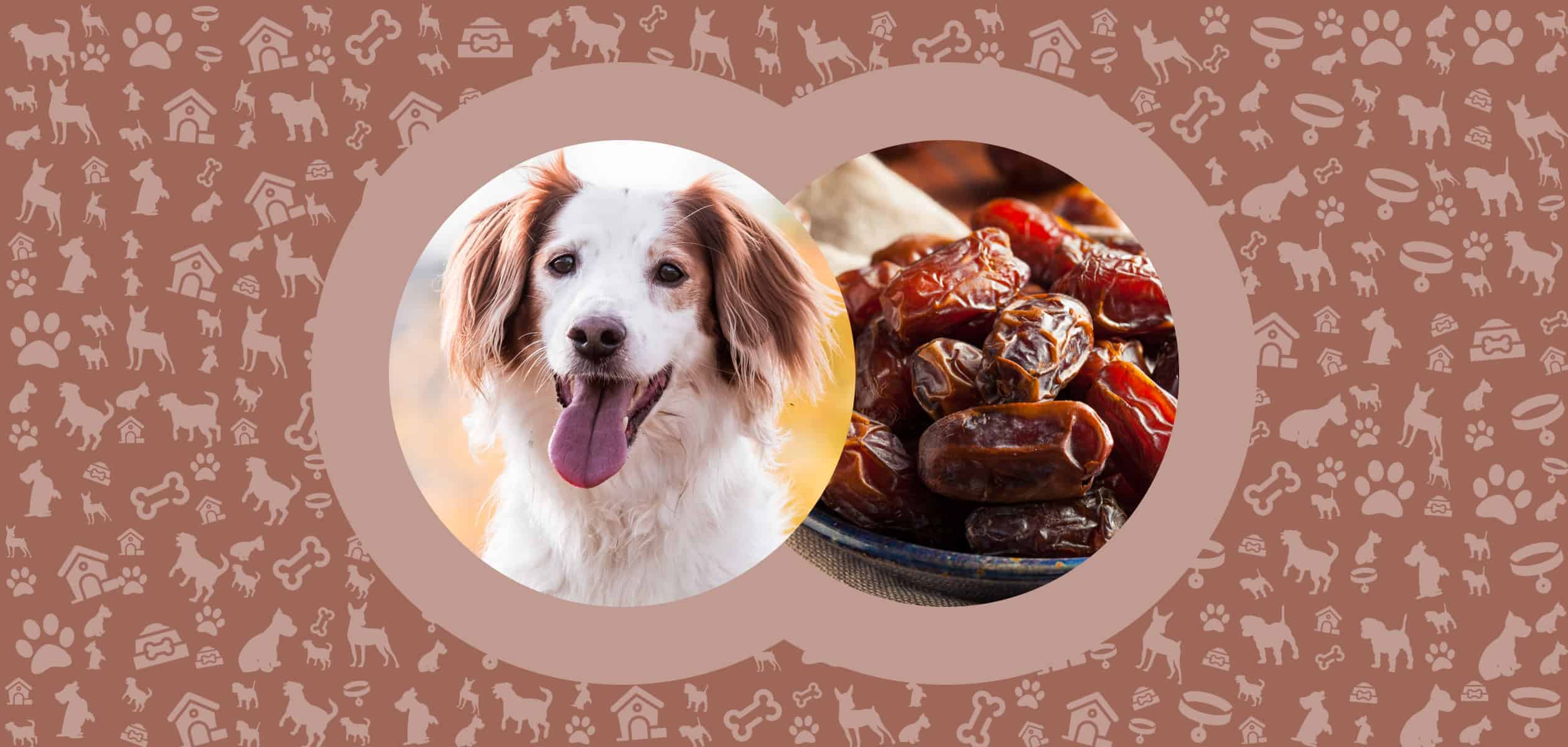
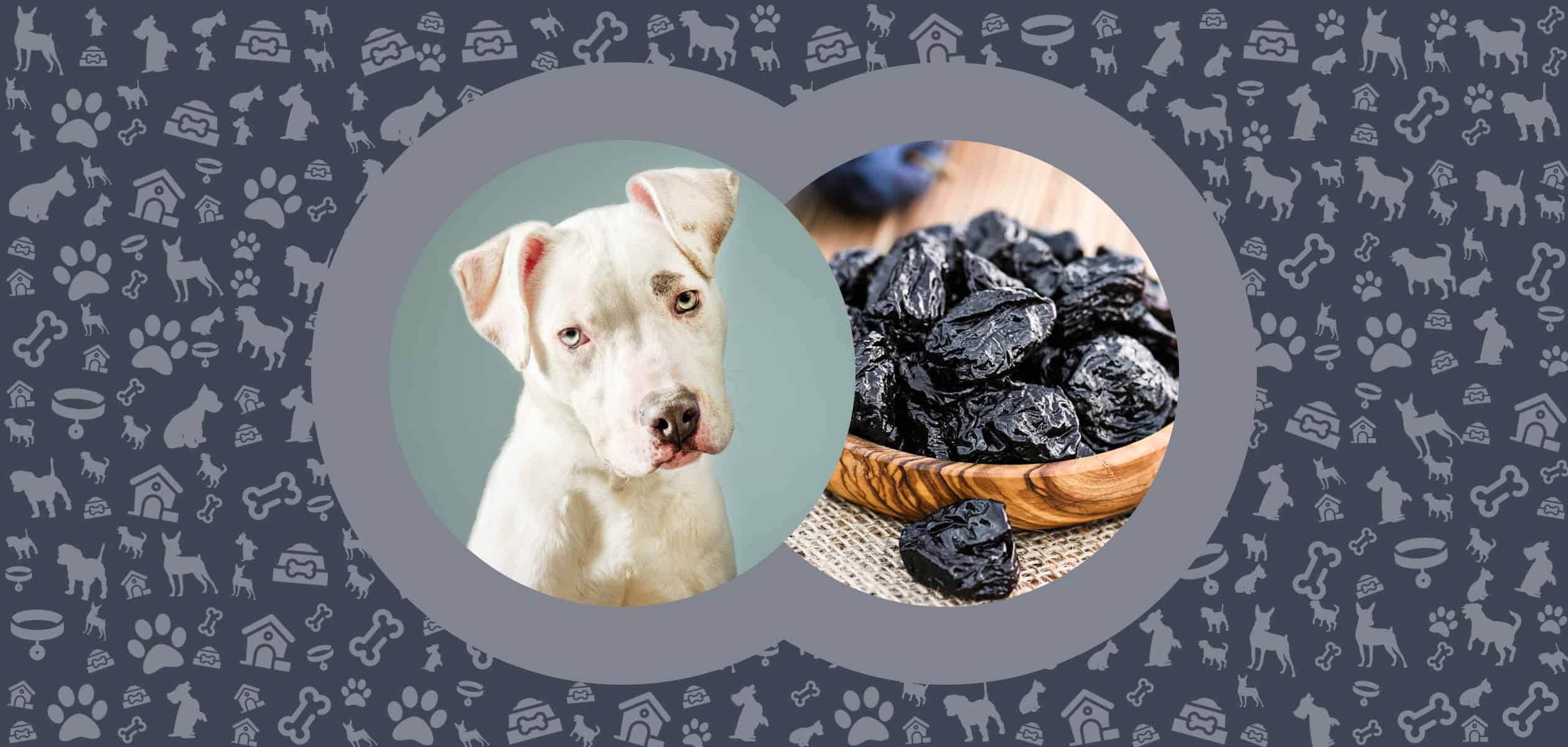
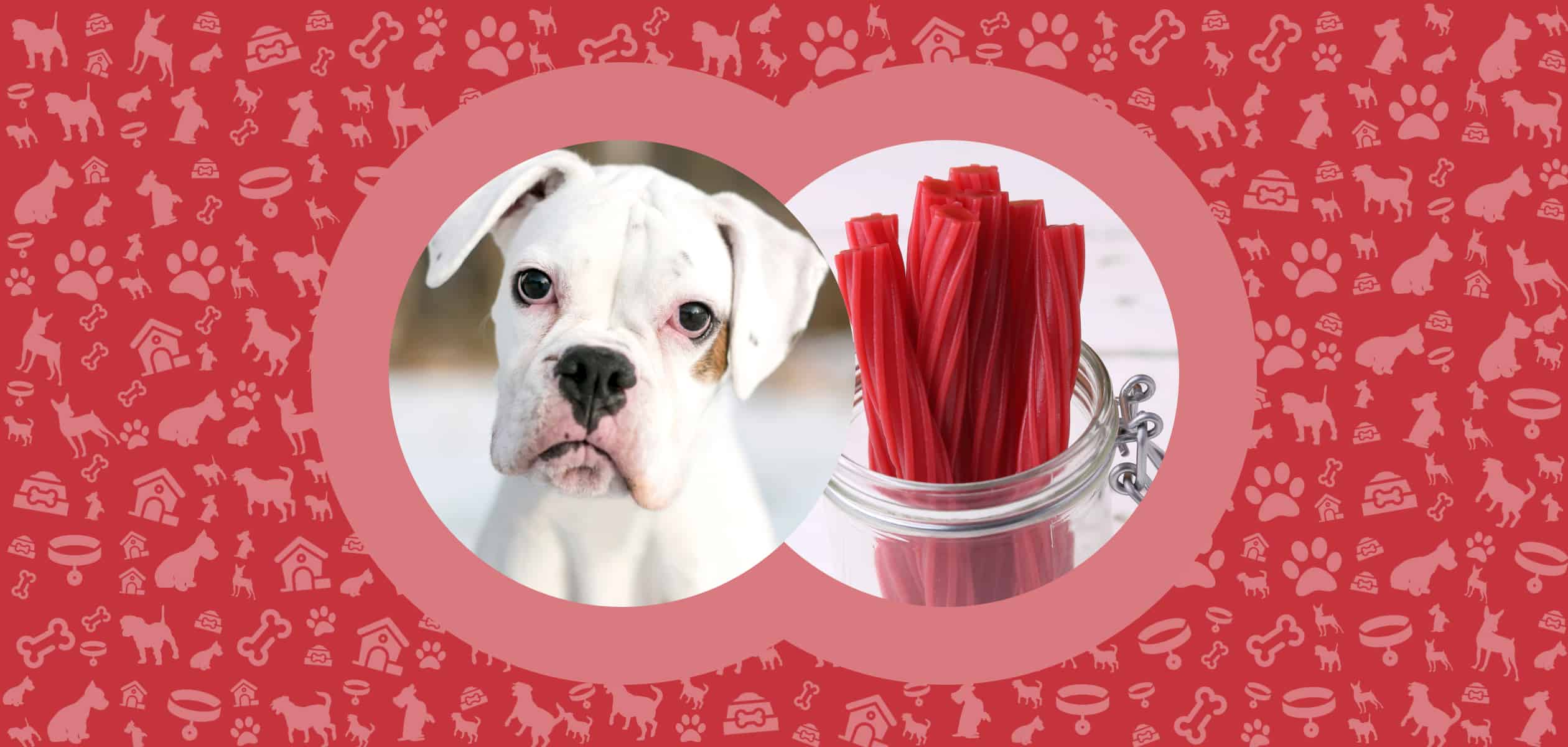
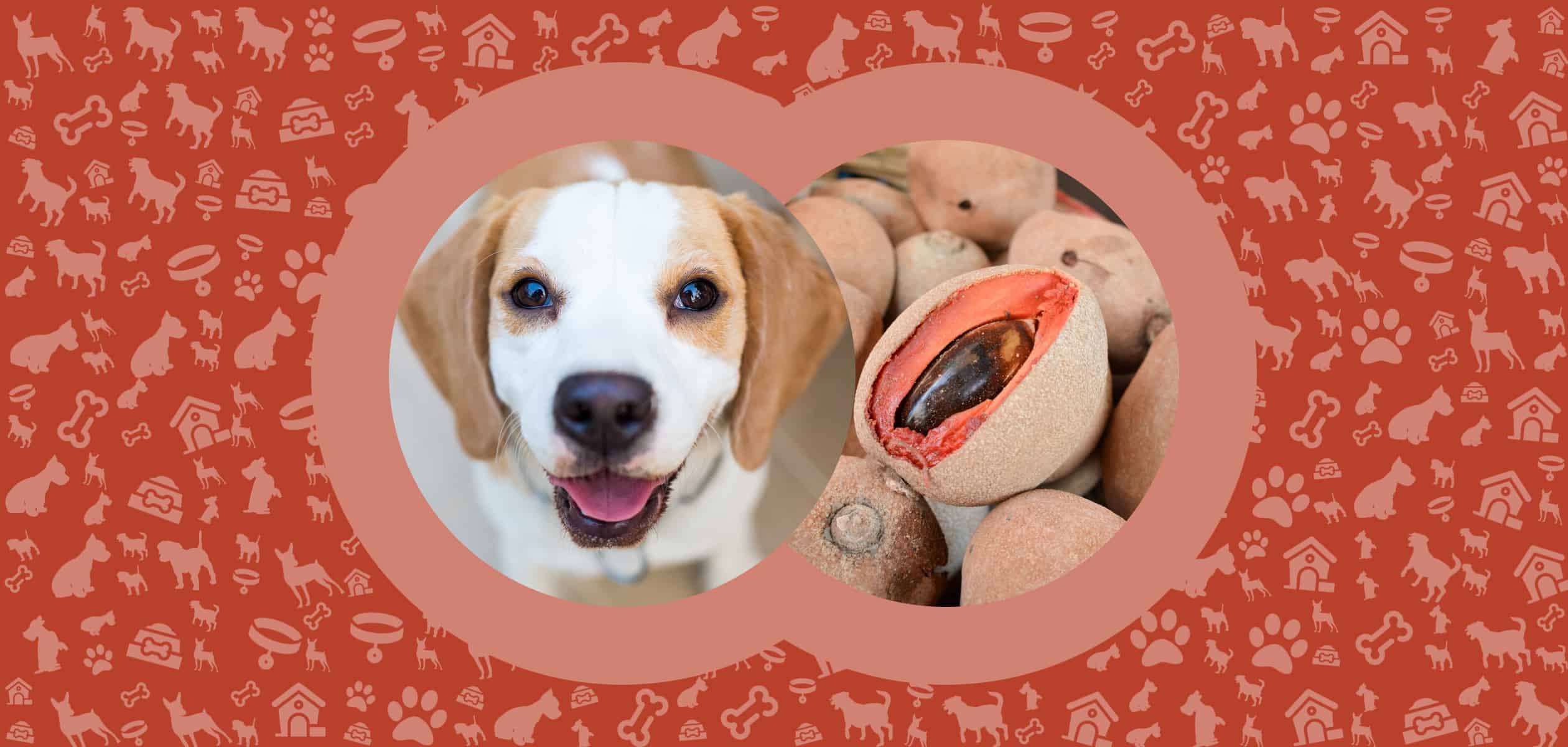
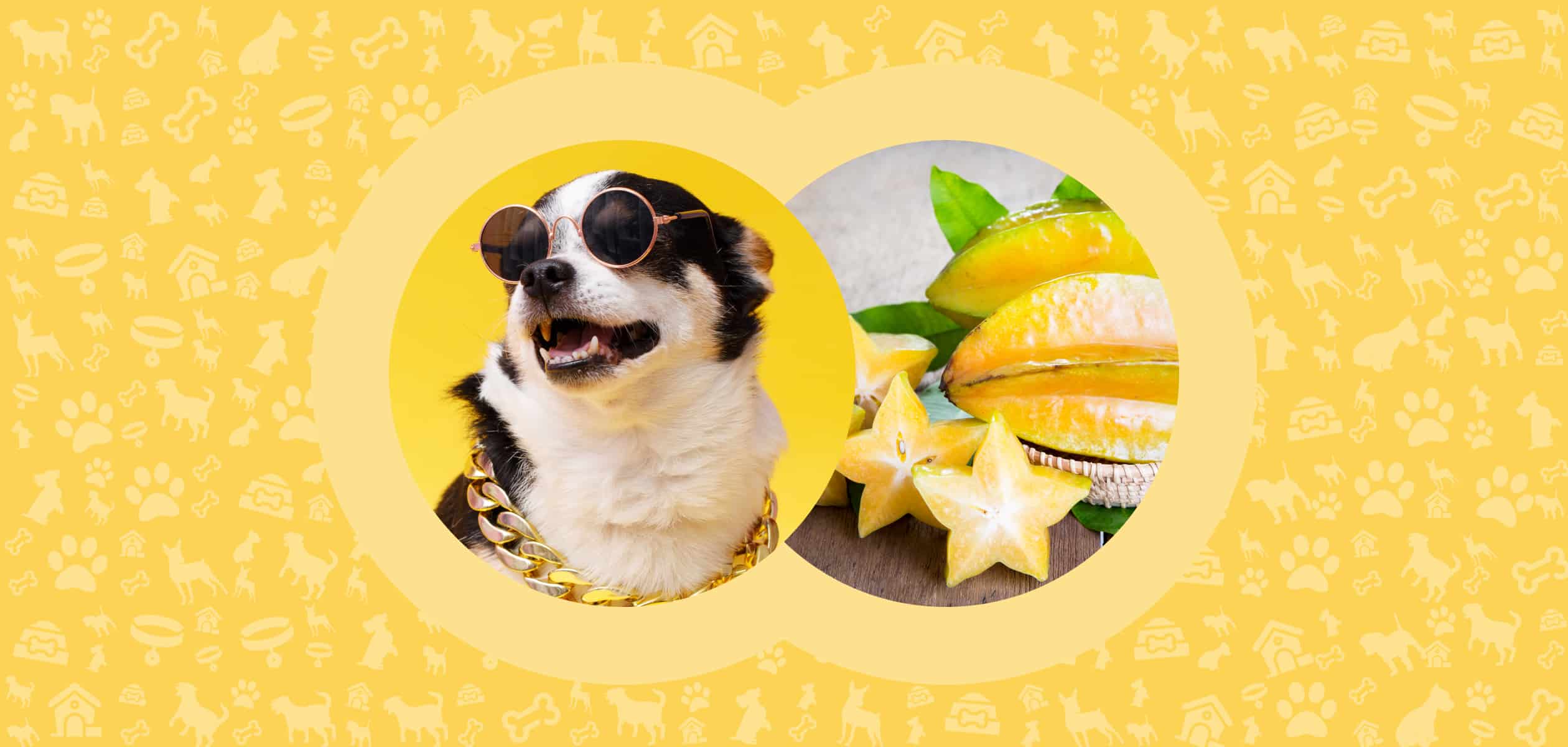
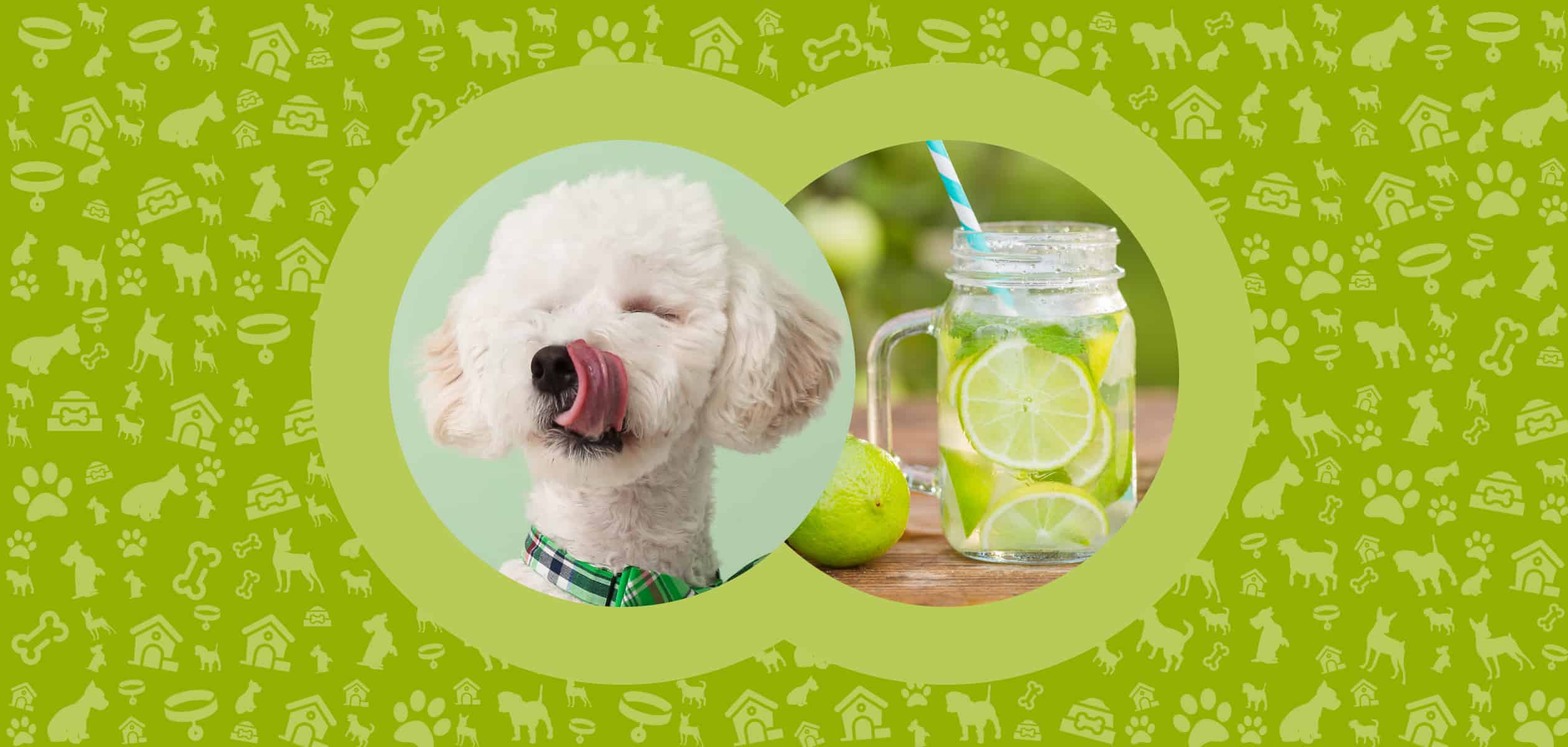
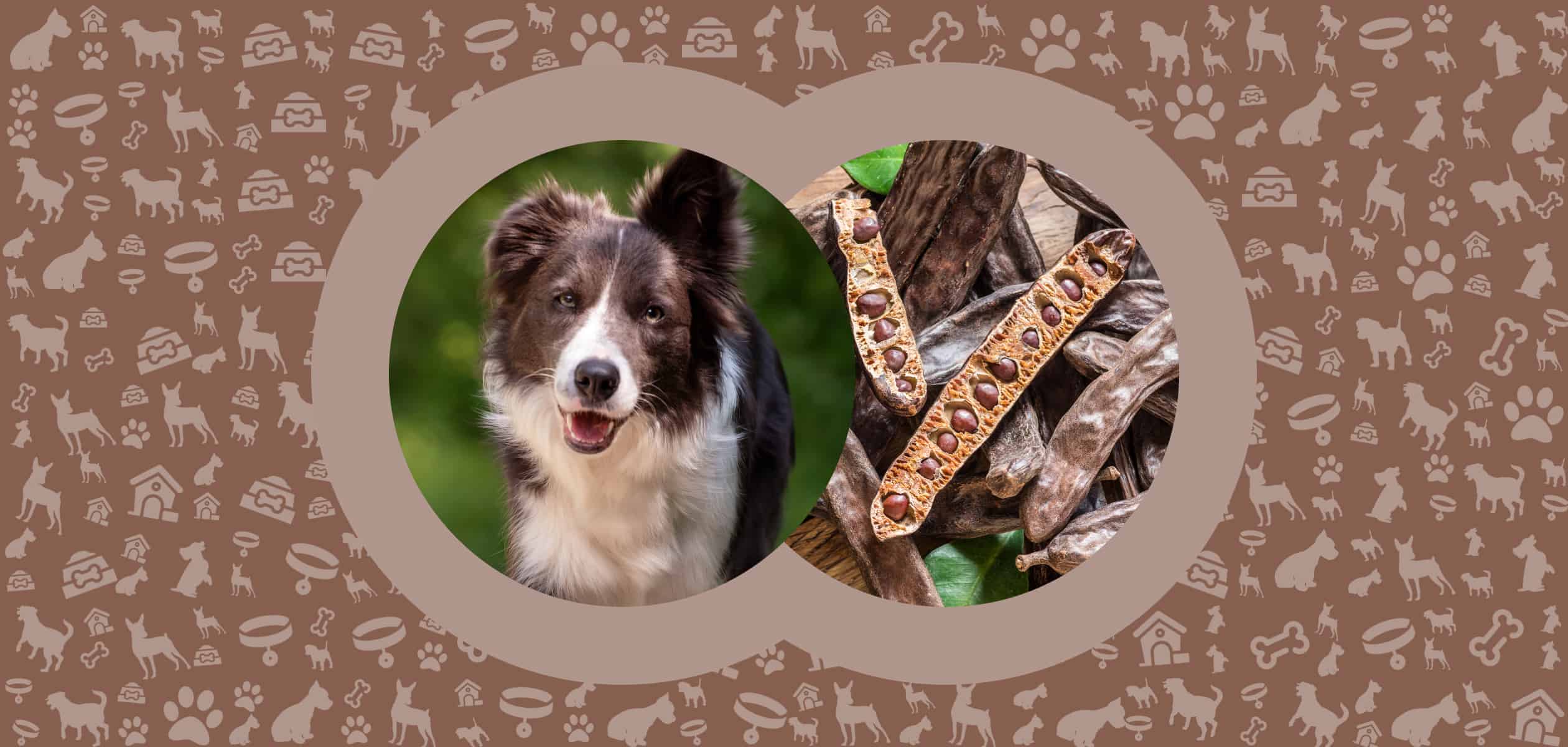
Leave a Comment